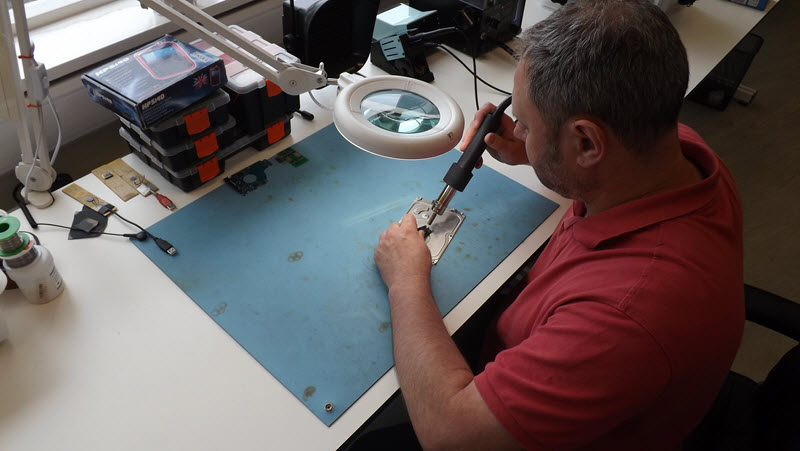All mechanical devices eventually fail. It isn't a matter of how it is simply a matter of when.
On a side note though, solid state drives (SSD drives) are becoming more and more popular with computer users. First of all, they have become more affordable over recent years and their capacities have increased gradually. But ultimately SSD's have been highlighted as one of the most efficient ways to speed up your PC. Users love the speed increase in boot times and general performance whilst navigating your desktop.
It's also important to point out that solid state drives also fail. However, as it stands, and in the case of jobs we receive here at R3 Data Recovery, Mechanical hard drives still have the best opportunity of having their data recovered, and if looked after properly generally have more longevity to them.
What Causes Errors On A Hard Drive?
From talking with our engineers at R3, an accepted cause of your hard drive failing is heat. Irrespective of how you feel about the role heat plays in wear and tear of the drive, you should take the approach of trying to limit the amount of heat your hard drive is exposed to, everyone knows the effect of heat on a PC's components, i.e. GPU, CPU, its only logical that it extends to your hard drive.
Physical damage of a hard drive can almost always leave it useless. In a brief explanation of the inner workings of a mechanical hard drive (HDD drive) it's basically made up of an aluminium platter that spins up once the device has power. The hard drive has a set of heads that accesses the data on the platter. As the platter spins, the heads move over it reading and writing data. Obviously by physically dropping your hard drive or dropping something onto it can cause the heads to become misaligned and by extension cause damage to the platter when they attempt to access to read/write from it.

Hard Drive Clicking Sounds
A symptom of physical damage is a clicking sound once the drive is powered up. That particular noise you hear is the heads repetitively striking the platter which causes more and more damage and therefore makes the chances of recovery more difficult.
Furthermore, the age of a hard drive is also a significant aspect in regards to the health of the drive. Mechanical drives have many internal moving parts. These parts begin to breakdown over time, which causes the hard drive to degrade.
In most cases, the drive fails gradually. This is a clear advantage of having a mechanical hard drive. It will often start to show signs and symptoms that will give a preliminary warning to back up your data, not always of course but generally. In contrast to a mechanical hard drive, an SSD can often fail without warning. In addition, as we often find at R3 recovery from solid state drives is often complicated, and almost impossible in some situations.
How To Monitor Your Hard Drive
Awareness is essential when it comes to maintaining your hard drive. Amongst the most important of how long it takes to perform simple tasks. The first warning sign that the drive is starting to go degrade is the speed of data transfer becomes extremely slow. Your hard drive may be approaching the end of its life cycle if it takes an extended amount of time for you to transfer a small file.As mentioned previously mechanical hard drives are made up of tiny moving parts. All of these parts move very rapidly in order to function. So obviously hearing out for unusual noises/vibrations and clicking is a sure-fire way of knowing your drive is failing or failed.Another way of monitoring your hard drive is through software that tests for hard drive problems. Solid state drives and hard drives both have the capacity to use Self-Monitoring Analysis Reporting Technology (SMART) to test whether the memory storage equipment is functioning properly. Basically, by preforming a SMART test you can detect read errors, reallocated sectors, failing block count, wear and lifetime usage statistics that may be suggestive of significant issues. SMART hopefully will give you time to replace or recopy your data before the hard drive fails entirely.Finally, and to reiterate, it's imperative to try as best as possible to keep the hard drive cool to extend its life cycle. People can take it for granted, but by purchasing and setting up a fan nearby to circulate the air around the unit may be very beneficial.Ultimately, and what we here at R3 Data Recovery always encourage whether the outcome of recovery is positive or negative is that the best thing you can do is to back up your hard drive. It's the simplest and most cost-effective way of retaining your data as all hard drives eventually fail.
If your hard drive happens to fail, contact our team of experts at 0800 999 3282. Our skilled professionals will be able to reliably recover data on your hard drive and provide industry-leading turnaround times which give you the confidence that's necessary to develop a solid, effective recovery plan.
